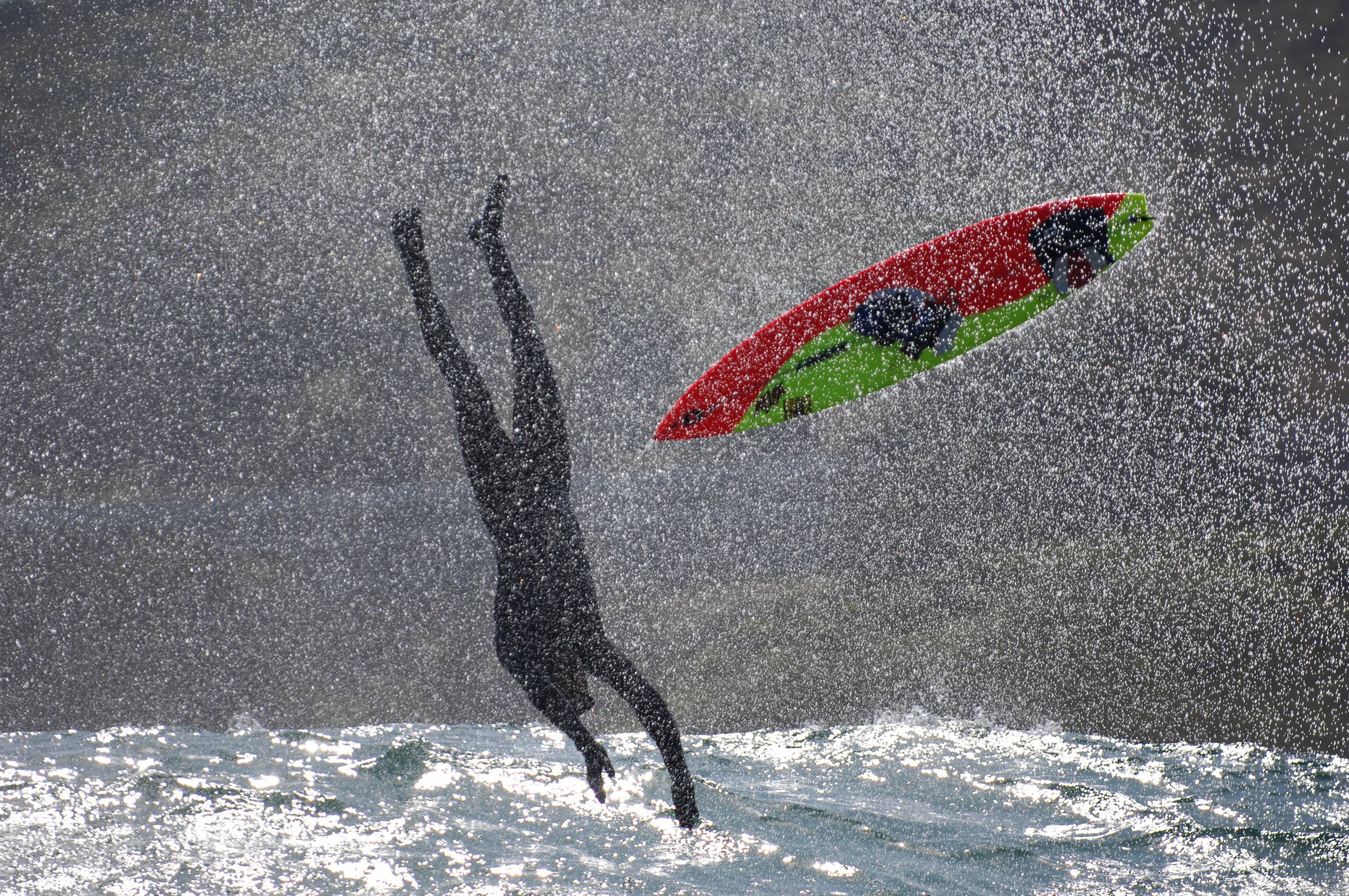
Parents are under unprecedented pressure to supply the perfect childhood, give their children the best of everything and ensure they excel at everything they do. And as a school principal, I feel a little extra pressure to model good parenting. Maybe that’s why my children had never seen me fail until recently. But wiping out in front of them became one of the most important lessons I could teach as a parent.
This summer, my husband, 9-year-old son, 7-year-old daughter, and I swam in the ocean, went for family bike rides and played endless rounds of skeeball. The time we spent together was deliberately unhurried, relaxed and comfortable—an antidote to our busy lives during the school year.
One afternoon, we decided to get out of our comfort zone and try something none of us had ever done before: surf. We wiggled into our wet suits, dragged our surfboards to the shoreline, and plunged into the water with our teachers at our sides, helping us paddle, punch through waves, and get into position.
After a few misses, something clicked for our two kids. Following the teachers’ instructions: Start paddling, pop up now, bend your knees, they surfed! My daughter achieved what our teachers called a “Fred Flintstone,” cruising all the way to the shoreline and stepping off the board onto the sand. I will never forget her triumphant squeal.
Next, my children cheered when their dad rode his first wave.
As for me, I wiped out – repeatedly. After I fell hard and scraped my foot, my daughter gazed up at me with concern. “Mommy,” she said, “why can’t you surf?”
I paused. Her question was not in any way mean-spirited. She was genuinely confused that she could do something that I couldn’t. Of course she was. Until this moment, we had only taught her things in which we were well versed—swim in the ocean, ride a bike, play skeeball. But my children had never seen me as a beginner.
Whether at school, at home, or on the playing fields, our children are constantly taught by adults to do things adults already know how to do. It’s no wonder so many kids struggle to try new things, tackle challenges head on, and pick themselves up after a failure—and why resilience among teens continues to decline.
One study found that when parents value their children’s success over their character development, their children show elevated symptoms of depression and anxiety. For these kids, the perception of their parents’ pride in them—and their own self-worth—rides on achieving and maintaining ‘star status.’
Adults preach that children must try new things, bounce back from failure, and respond constructively to feedback. But what children need is for the adults in their lives to model that behavior.
Daniel Coyle, author of The Talent Code, writes that “when it comes to developing talent, remember, mistakes are not really mistakes—they are the guideposts you use to get better.” We tell this to our children all the time, but how often do we show them how it’s done?
I knelt down next to my daughter and said: “Well, you see, I’ve never surfed before. I’m having trouble with my balance because of where I’m placing my feet on the board. I can’t surf yet. But I’ll get it.”
On the next wave, I planted my right foot at the back of the board. And then, I experienced a magical feeling of flying as I glided across the water, while back at the shoreline, my little girl shouted, “Good job, Mommy! Bend your knees!”
My daughter was giving me feedback. She was also showing me that parents and teachers would be more effective if they more regularly walked in children’s shoes.
Read More: How to Talk to Your Kids About Beach Safety
Heading into this new school year, I will make an effort to “be willing to be a beginner every morning,” as philosopher Meister Eckhart says. I will wipe out from time to time in front of my colleagues, the faculty and students at my school, and my own children. And I will invite parents and teachers to reflect on how we can teach children to be good learners and beginners if they rarely see adults do it.
If as the saying goes, your best teacher is your last mistake, how do we empower children and adults alike to see mistakes as guideposts you use to get better and to seek feedback for what should happen next? The answer is both difficult and simple: Let them see you do it.
More Must-Reads from TIME
- Donald Trump Is TIME's 2024 Person of the Year
- TIME’s Top 10 Photos of 2024
- Why Gen Z Is Drinking Less
- The Best Movies About Cooking
- Why Is Anxiety Worse at Night?
- A Head-to-Toe Guide to Treating Dry Skin
- Why Street Cats Are Taking Over Urban Neighborhoods
- Column: Jimmy Carter’s Global Legacy Was Moral Clarity
Contact us at letters@time.com